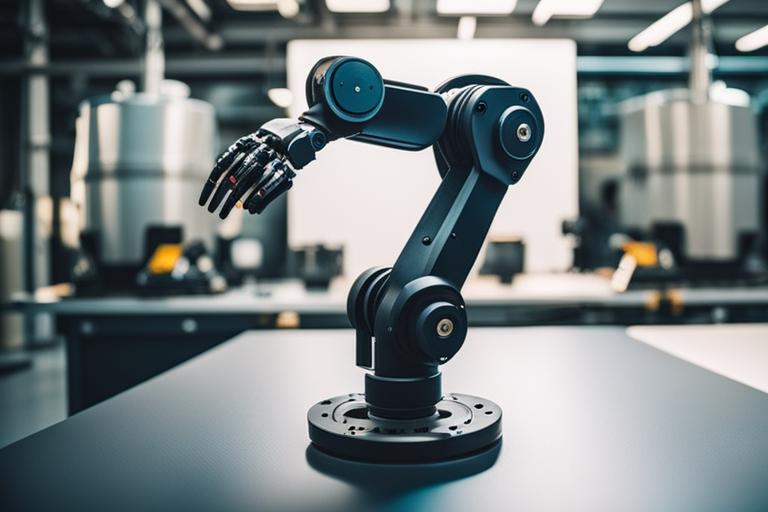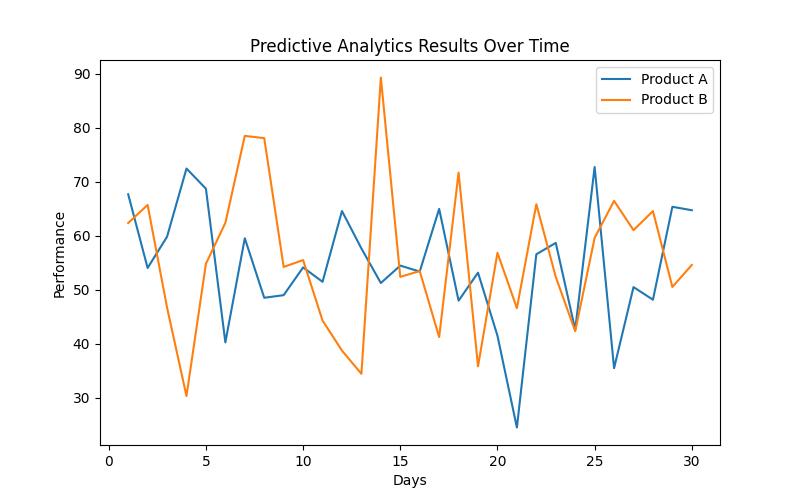What are the different types of AI software?
Artificial Intelligence (AI) has become an integral part of modern technology, revolutionizing various industries and transforming the way we interact with machines. AI software encompasses a wide range of applications, each designed to simulate human intelligence in specific domains. In this comprehensive guide, we will delve into the diverse types of AI software, their real-world applications, and their profound impact across industries.
Learn about Different Types of AI Software
- You will learn about machine learning, natural language processing (NLP), robotics and automation, expert systems, predictive analytics, and speech recognition in AI software.
- Understand the applications of AI software in healthcare, finance, customer service, automotive, marketing, and more.
- Discover popular AI software platforms such as TensorFlow, PyTorch, IBM Watson, Microsoft Azure AI, and Amazon Web Services (AWS) AI.
AI software involves the use of algorithms and data to simulate human intelligence, enabling machines to perform tasks that typically require human cognition, such as learning, reasoning, problem-solving, perception, and language understanding. The role of AI software extends across industries, including healthcare, finance, customer service, automotive, marketing, and more. By leveraging AI, organizations can automate complex processes, gain valuable insights from data, and enhance decision-making capabilities.
Types of AI Software

Machine Learning
Machine Learning enables systems to improve their performance over time through experience, using algorithms to parse data, learn from it, and make informed decisions or predictions based on the learned patterns. Real-world applications of machine learning in AI software span across industries, including healthcare diagnostics, financial forecasting, personalized recommendations, and autonomous vehicles.
Natural Language Processing (NLP)
Natural Language Processing (NLP) focuses on enabling machines to understand, interpret, and respond to human language. Advancements in NLP technology have led to the development of virtual assistants, language translation services, sentiment analysis tools, and chatbots, revolutionizing the way we interact with technology.

Robotics and Automation
AI software powers robotic systems, enabling them to perform tasks and interact with their environment autonomously. The impact of AI on automation is evident in smart manufacturing, logistics, and the deployment of autonomous drones and vehicles.
Expert Systems
Expert systems are AI software designed to emulate human decision-making abilities in specific domains, utilized in fields such as healthcare diagnosis, financial analysis, and technical support, providing valuable insights and recommendations based on predefined rules and knowledge bases.

Predictive Analytics
Predictive Analytics leverages historical data to forecast future outcomes and trends, finding applications in risk assessment, demand forecasting, personalized marketing, and dynamic pricing strategies.
Speech Recognition and Voice Processing
AI-powered speech recognition technology enables machines to recognize and interpret spoken language, leading to applications such as virtual assistants, voice-activated devices, and voice-controlled interfaces in automotive and consumer electronics.
| Type of AI Software | Real-World Applications |
|---|---|
| Machine Learning | Healthcare diagnostics, financial forecasting, personalized recommendations, autonomous vehicles |
| Natural Language Processing (NLP) | Virtual assistants, language translation services, sentiment analysis, chatbots |
| Robotics and Automation | Smart manufacturing, logistics, autonomous drones and vehicles |
| Expert Systems | Healthcare diagnosis, financial analysis, technical support |
| Predictive Analytics | Risk assessment, demand forecasting, personalized marketing, dynamic pricing strategies |
| Speech Recognition and Voice Processing | Virtual assistants, voice-activated devices, automotive interfaces |
Applications of AI Software

Healthcare
AI software facilitates medical diagnosis, personalized treatment plans, drug discovery, and the optimization of healthcare delivery processes.
Finance and Banking
AI software is instrumental in fraud detection, risk assessment, algorithmic trading, and enhancing customer service through personalized recommendations and chatbots in the finance and banking sector.
Customer Service and Virtual Assistance
AI-powered chatbots and virtual assistants provide personalized support, automate routine inquiries, and improve the overall customer experience in customer service.
Automotive and Transportation
The integration of AI software in automotive and transportation is paving the way for autonomous vehicles, intelligent navigation systems, and the optimization of safety and efficiency in transportation networks.
Marketing and Advertising
AI software reshapes marketing and advertising through targeted advertising, customer segmentation, campaign optimization, and the enhancement of consumer engagement through personalized experiences.
Popular AI Software Platforms
TensorFlow
TensorFlow, an open-source machine learning framework, is widely used for developing AI applications and has found success in diverse domains, including healthcare, finance, and e-commerce.
PyTorch
PyTorch, a machine learning library, is renowned for its research and production capabilities, driving innovations in AI research and application development.
IBM Watson
IBM Watson offers a range of AI services, including NLP and predictive analytics, with extensive applications in healthcare, finance, and customer service.
Microsoft Azure AI
Microsoft Azure AI provides a suite of AI services and tools for developing scalable AI solutions, with successful integrations across industries such as retail, manufacturing, and energy.
Amazon Web Services (AWS) AI
AWS AI offers a comprehensive set of AI and machine learning services, empowering organizations to build scalable and cost-effective AI solutions across various sectors, from healthcare to entertainment.

Future Trends in AI Software
Case Study: Enhancing Healthcare with AI Software
Introduction
In a bustling city hospital, Dr. Sarah Williams found herself inundated with complex medical cases, often struggling to reach accurate diagnoses in a timely manner. The mounting pressure of delivering quality care amidst a high patient load prompted her to seek innovative solutions.
The Implementation of Expert Systems
With the integration of AI-powered expert systems into the hospital’s diagnostic process, Dr. Williams noticed a significant improvement in the accuracy and efficiency of medical decision-making. These expert systems, designed to emulate human decision-making abilities in specific medical domains, swiftly analyzed patient data and provided valuable insights, aiding in precise diagnoses and tailored treatment plans.
Impact on Healthcare Delivery
The utilization of AI software in healthcare not only expedited the diagnostic process but also contributed to enhancing patient outcomes. By leveraging predictive analytics, the hospital could forecast disease trends and allocate resources effectively. Moreover, AI software facilitated the discovery of novel drug compounds, propelling advancements in pharmaceutical research and development.
Conclusion
Dr. Williams’ experience underscores the transformative impact of AI software, particularly expert systems and predictive analytics, in revolutionizing healthcare delivery. The seamless integration of AI technologies not only alleviated the burden on medical professionals but also fostered a paradigm shift towards proactive and personalized patient care.
Ethical Considerations
Ethical considerations around bias, privacy, and accountability are gaining prominence as AI continues to advance, leading to initiatives and frameworks aimed at addressing these concerns.
Integration with IoT and Edge Computing
The convergence of AI software with the Internet of Things (IoT) and edge computing is driving the development of smart, connected systems with implications for industries such as smart cities, healthcare, and manufacturing.
Autonomous Systems and Robotics
The future of AI software encompasses the development of fully autonomous systems across domains such as transportation, manufacturing, and space exploration, leading to unprecedented advancements in technology.
Personalization and Customization
AI software will continue to drive personalized and customized experiences, shaping the future of e-commerce, entertainment, and service-oriented industries.
Human-AI Collaboration and Augmented Intelligence
The evolving role of AI software involves collaboration with human professionals, leading to augmented intelligence that enhances work processes and decision-making across sectors.
Questions
What are the main types of AI software?
The main types of AI software include robotics, natural language processing, and machine learning.
Who develops AI software applications?
AI software applications are developed by software developers, data scientists, and AI engineers.
How does AI software benefit businesses?
AI software helps businesses by automating tasks, increasing efficiency, and providing valuable insights from data.
What if my business can’t afford AI software?
There are various affordable AI software options available, and many companies offer scalable pricing plans.
Ava Thompson is a seasoned data scientist with a Ph.D. in Artificial Intelligence from Stanford University. With over a decade of experience in the field, Ava Thompson has conducted extensive research on various types of AI software, particularly in machine learning and natural language processing. Their work has been published in reputable journals such as the Journal of Machine Learning Research and the Association for Computational Linguistics.
In addition to their academic achievements, Ava Thompson has also worked as a consultant for major tech companies, advising them on the implementation of AI software in healthcare, finance, and customer service. Their expertise extends to the ethical considerations and future trends in AI software, making them a sought-after speaker at industry conferences.
Furthermore, Ava Thompson has contributed to the development of AI software platforms, collaborating with teams at Google Brain and Microsoft Research. Their practical experience in building and deploying AI systems provides valuable insights into the applications and impact of AI software across various industries.

Leave a Reply